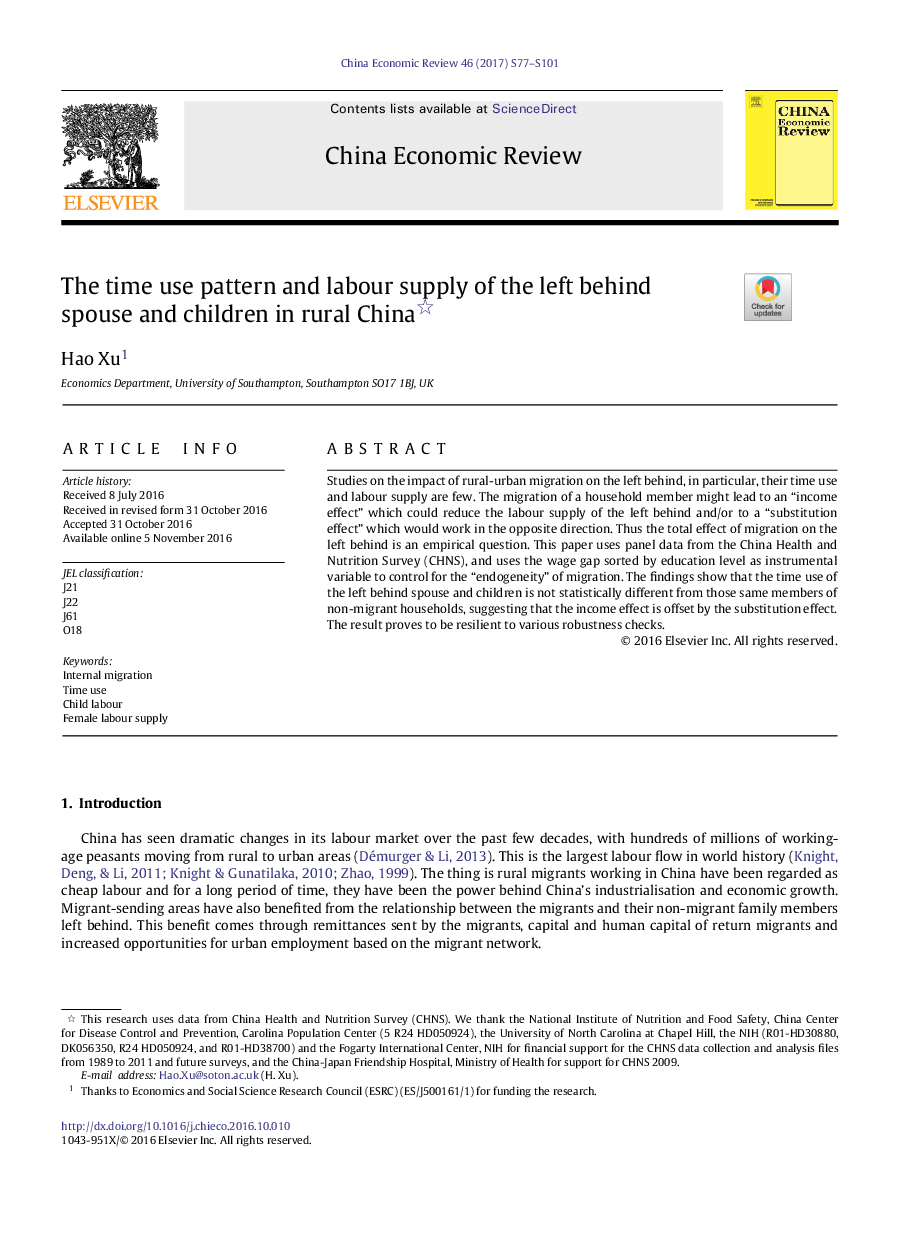| Article ID | Journal | Published Year | Pages | File Type |
|---|---|---|---|---|
| 7342471 | China Economic Review | 2017 | 25 Pages |
Abstract
Studies on the impact of rural-urban migration on the left behind, in particular, their time use and labour supply are few. The migration of a household member might lead to an “income effect” which could reduce the labour supply of the left behind and/or to a “substitution effect” which would work in the opposite direction. Thus the total effect of migration on the left behind is an empirical question. This paper uses panel data from the China Health and Nutrition Survey (CHNS), and uses the wage gap sorted by education level as instrumental variable to control for the “endogeneity” of migration. The findings show that the time use of the left behind spouse and children is not statistically different from those same members of non-migrant households, suggesting that the income effect is offset by the substitution effect. The result proves to be resilient to various robustness checks.
Related Topics
Social Sciences and Humanities
Economics, Econometrics and Finance
Economics and Econometrics
Authors
Hao Xu,
